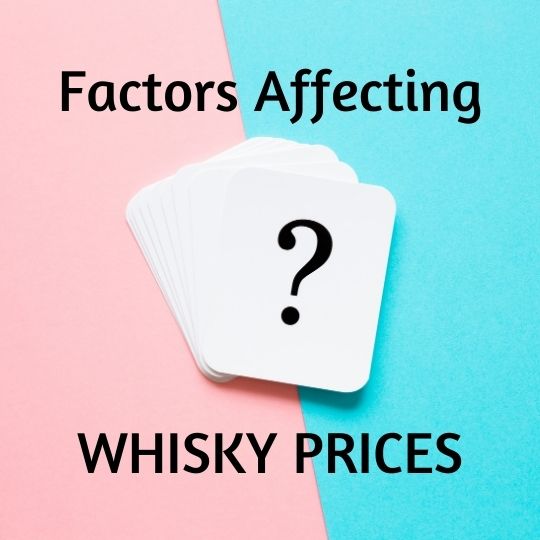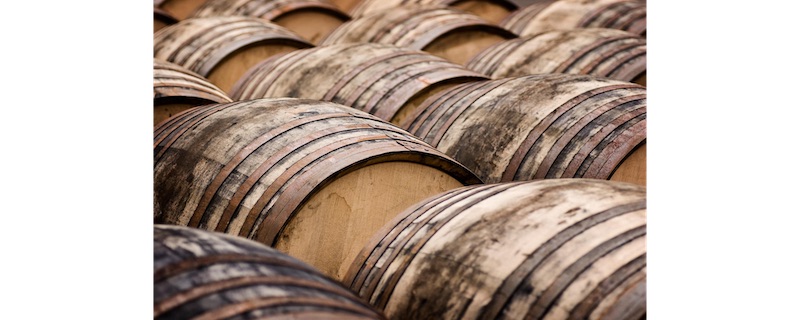Whisky and Prices – Factors that Determine Prices

Whisky is on an upward trend in consumers preferences around the world since 2010. The last ten years had seen tremendous growth in consumers choosing whisky over other kinds of spirits. While there was a period where gin gained traction, it died down pretty quickly with the rise of more whisky choices. With the overwhelming preference from consumers globally, market forces began to act on the prices of whisky.
We saw rapid growth for particular brands of whiskies, especially those which won awards. An excellent example would, of course, be Yamazaki. The brand shot to fame overnight after its Sherry Cask 2014 won the converted award of Best Whisky in the World in Jim Murray’s Whisky Bible. Since then, the prices of all Yamazaki bottles have gone northwards.
Japanese vs Scotch
The award from Yamazaki shot many Japanese whiskies to fame since then. The latest to join the fray is Chichibu. The boutique distillery caused a stir in the market whenever they release a new bottling, and it is so difficult to buy them at retail prices that people fought over the bottles. This worldwide phenomenon is seen by some critics as silly, but others, including investors, are willing to fight for a bottle of Chichibu for its perceived value.
Scotch whiskies, on the other hand, are steadily increasing in prices. The demand for specific brands also shot the prices of these whiskies skyward, making them harder to find and difficult to afford. Some examples of Scotch whiskies that are getting too expensive include Clynelish and to some extent, Ben Nevis. Nonetheless, the bottles that are going up in prices are mostly independent bottling. The standard distillery bottles are still affordable.
Factors that Determine Prices
There are many factors which determine prices. In the whisky industry, demand and supply are not the only things that cause price increase, even though these factors are a big part of the equation.
Cost of Manufacturing
In any form of production, the cost of manufacturing is a huge factor. Whisky production takes time and money. The spirit that comes off the still needs at least three years to rest in an oak cask before it can be called whisky (at least in Scotland). Many boutique producers incurred high costs to make whisky. Not only do they not have the economies of scales like the bigger players, but they also do not have the global market to sell their products to. In order to keep the company sustainable, they usually need a bigger margin.
Marketing Cost
For boutique distilleries, the marketing cost is also an issue. It is especially critical if the distillery is young, or looking for a new market. The distillery usually needs a large sum of money to venture and enter into new markets where potential customers can try their whiskies for free. It can be made more difficult if the distillery is young, and offers only non-age statement whiskies. To complete the doom and gloom, consumers generally do not care for whiskies that are not Scotch. The worldwide phenomenon is similar to non-Scotch boutique distilleries, especially if they are trying to enter the Asian market. Therefore, one of the easiest solutions for these producers is to price their whiskies higher to help with the ever-increasing marketing cost.
Demand from Consumers
Willing Buyers, Willing Sellers
So said a very wise man we know…
The previous point leads us to a vital discussion of what consumers want. The long years of marketing by the Scotch whisky industry shaped the current demand. Discerning drinkers want to enjoy only high-aged Scotch single malts and are willing to shell out more money for these bottles. The problem, however, is that distilleries in Scotland are running out of older casks. The introduction of non-age statement bottling from various distilleries is the admission from the industry that something needs to change. While it could be a happy problem for the distilleries in the long term, the shortage of higher-age whiskies put a lot of stress on the producers right now.
The shortage naturally leads to a rise in prices for high-age bottles in the secondary market. Discerning drinkers began to buy their desired bottles from others who are willing to sell them. As a result, the market forces pushed the prices higher, making it unaffordable for some. Some distilleries, such as Ardbeg, noticed the price increase for their products, and are working hard to bring them back down. They do so by expanding their production lines, bottling younger or NAS whiskies and marketing them as desirable. Despite the efforts by these distilleries, the secondary market is still robust with discerning drinkers willing to buy at high prices.
Independent Bottling (IBs)
In the not so distant past, independent bottlings are usually lower in prices. Many discerning drinkers buy them because of various reasons. For the uninitiated, independent bottlings are whiskies bottled by companies or individuals who are not part of the distillery. They are independent. An example of a famous independent bottler is Scotch Malt Whisky Society or SMWS for short. Another one would be Cadenhead. Such bottlers have reputations of bottling quality single cask whiskies at cask strength. The whiskies are also non-chill-filtered and do not contain colouring.
Influence on IBs’ Prices

Today, the prices of IBs are rising as well. Sure, there are certain IBs that are still affordable, such as Single Malts of Scotland (SMOS). However, most of the IBs that do not originate from Scotland are facing the problem of higher costs. These costs include casks prices, logistics and even things like designers for labels.
Cask Prices
“Excuse me, can I buy a cask please?
As the whisky industry advances, more and more people are buying whisky casks for investment and personal bottling purposes. As a result of individuals buying up casks, the demand for cask trade went up. This affects the ability of smaller IBs companies to ensure a steady steam of casks for their bottling plans. The demand for cask trade also pushes up the prices of the casks, making it appealing to investors to join the fun.
With all the activities in cask trade, the only winners are the large IBs companies who are holding ready casks in their inventory, ready for sales or bottling. Smaller IB players have to shell out more funds to continue bottling casks for their brands.
Logistics and Other Costs
If a bottler is not operating a business in Scotland, he would depend on someone in Scotland to store, monitor and bottle his casks when they are ready. This can drag up to 12 months or more if there are unforeseen delays. In addition, the shipping cost from Scotland to the bottler’s location is not cheap either.
Take, for example, an independent bottler going about his business. After choosing a cask, the owner needs to wait up to 6 or 12 months for his cask to be bottled by the various brokers/bottling plants in Scotland. He pays for all the bottling fees, the designer for his customised labels, and various other fees involved. After the bottling plant completes the job, the independent bottler finds a freight forwarder to ship his whiskies from Scotland to his country. All the fees involved in the process increases his cost, sometimes drastically. In the end, when he finally sells his bottles, it is probably 1.5x more expensive than his counterparts who operate in Scotland.
Alcohol Duties and Taxes
Most countries considered alcohol as a luxury or a vice. As a result, whisky is heavily taxed. In many countries around the world, whisky attracts a tax that is higher than most other commodities. Importers, distributors, and resellers shoulder these duties and taxes to the detriment of their business profitability.
We often hear people saying that “local sellers takes high margins” or “they sell so expensive” or worse still, “it’s daylight robbery”. While some of these sentiments may reflect the truth, the fact remains that many other sellers do not do that. The higher price is simply to cover their costs and give them a little margin.
Frustrations and Misunderstandings
“I am not selling a higher price for profit. I am selling at this price to cover my cost.”
Annoynomous
There are many other sellers down the line from the bottlers themselves. Most of these bottlers do sell on their whiskies to distributors and retailers. The longer the supply chain goes, the higher the cost. These sellers lower on the supply chains bemoan their high costs, and their frustrations regularly. Not only that they are not able to compete on fair grounds with sellers with lower costs, they are often misunderstood by their customers. Some retailers bitterly commented that customers walked into their shops to mock them about higher prices. While it is not common, we can understand the frustration of these retailers.
Online retailers are not spared either. Consumers forget that online platforms charges fees and monthly subscription too. Some online retailers struggle to make ends meet because they are not making enough sales per month. Yet, they are forced to compete with others higher in the supply chain.
Unhealthy Competition
Sometimes, we also heard of issues from the industry where there is unhealthy competition. We term it so to include any form of undercutting and smear campaigns of other businesses. Singapore is lucky that we have a cooperative and friendly whisky industry where we look out for one another. The same thing cannot be said in other countries. Unhealthy competition is too real for their small business owners.
Please Be More Understanding, and Support Local, Small Players
All of us want a good deal. However, we cannot expect local, small players to give us a good deal all the time. While it is up to each seller to determine whether their business is sustainable, we can do our part by supporting the small players whenever we can. While some of their prices may be higher than you expect them to be, supporting them with one bottle goes a long way in helping them survive. Pandemic or not, this is how small businesses grow.
Disclaimer
This article is written based on research online and various interviews with small business owners in the whisky industry around Asia. As we have promised each interviewee that their identities will not be revealed, we seek our reader’s understanding of us not providing more information.
